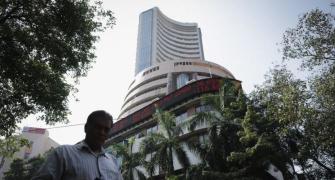 The instances of fake currency detection continue to occur despite a slew of measures initiated by the Reserve Bank of India (RBI) in recent months. According to investigating agencies, the recently recovered Rs 2 crore (Rs 20 million) in fake currency in Mughalsarai, is just the tip of the iceberg.
The instances of fake currency detection continue to occur despite a slew of measures initiated by the Reserve Bank of India (RBI) in recent months. According to investigating agencies, the recently recovered Rs 2 crore (Rs 20 million) in fake currency in Mughalsarai, is just the tip of the iceberg.
According to officials, the racketeers have innovated and strengthened their network and modus operandi with time. Such activities are run in a professional manner with dealers and middlemen appointed across the states, who earn brokerages up to 50 per cent in lieu of circulating fake notes in the market.
GRP's Mughalsarai in-charge, Tripurari Pandey said these notes were largely smuggled from the Nepal border into the country while Kanpur and Azamgarh remained the prime markets for trading of fake currencies in Uttar Pradesh. According to available data, in 2009 alone, the RBI has registered 25 instances of fake currency detection in banks located in Nazirabad area of Kanpur city.
Data provided by regional RBI office claims that circulation and detection of fake currency has almost doubled since 2004. According to the rules, the bank branch managers are held responsible for detection of fake currency notes in the chest, due to which they usually try to cover up the detection instead of reporting it to the investigative agencies. The manager is booked under Section 489-D of the Indian Penal Code (IPC), whereby he can be imprisoned for up to 10 years.
RBI imposes a fine of Rs 5,000 on the concerned branch on every 1,000 currency notes found with it. Apart from this, a fine of Rs 500,000 may be imposed if fake currency is detected thrice at the same branch. The bank managers, in order to avoid police harassment and protracted legal procedures, generally replace the fake notes by genuine ones without reporting the detections.
Another reason cited for the increased number of fake notes is the non-availability of foolproof detection machines, forcing the banks to rely on the cognitive experience of cashiers for distinguishing fake ones.
RBI officials have notified all the banks for installing sorting machines to detect the fake notes but according to a senior official at Punjab National Bank, even the sorting machine is not foolproof and detects only the suspicious notes, while the final testing has to be done manually by the experienced cashiers who examine it in ultraviolet light.
He said that despite these measures, around 15-20 fake notes managed to reach the currency chest. State bank of India DGM Sanjay Dikshit said sorting machines had been installed at all SBI branches, in addition to the ultraviolet testing facility. "We also run regular consumer awareness campaigns to disseminate information regarding fake currency," he added.








